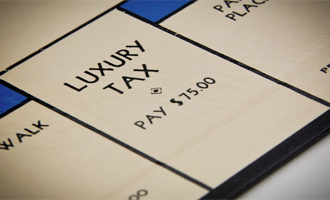
Originally posted on April 25, 2016.
Don Stevens is the mayor of North Bonneville, Washington, a town of about 1,000 people on the banks of the Columbia River near the Oregon border. Using authority granted by a state statute, Stevens established a retail marijuana outlet owned and operated by the town. He wears a shirt that says “Reefer Madness is not a documentary,” and his business cards list his job title as “The Marijuana Mayor.” Stevens thinks North Bonneville’s outlet is the only one of its kind in the country, but that is likely to be only temporarily true. North Bonneville’s initiative is part of a broader movement to legalize marijuana, regulate its distribution, and reap benefits for governments.
The Spread of Marijuana Legalization
As of January 2016, the states of Colorado, Washington, Oregon, and Alaska had authorized the sale and consumption of social marijuana. Twenty-three other states permitted use of marijuana for medical purposes. Governments benefit, not just by reducing crime but also from new revenues. According to the Washington Post, Colorado expected revenues of over a billion dollars in 2016. The realities of economic competition suggest that legal marijuana eventually will become as commonplace as alcohol.
Legalization also makes sense as good public policy. In his 2016 state of the state speech, Vermont Governor Peter Shumlin proposed to allow the sale and possession of small amounts of marijuana. He acknowledged that drug addiction was a threat to Vermont’s social fabric and blamed pharmaceuticals such as OxyContin “which lit the match that ignited America’s opiate and heroin addiction crisis.” But Shumlin argued that marijuana falls into a different category and “should be authorized and regulated by the state.” He asked lawmakers to cooperate with him to develop legislation “that thoughtfully and carefully eliminates the era of prohibition that is currently failing us so miserably.”
Outright prohibition fails because demand for marijuana distorts the economics of legal production. A January 2016 report from the Associated Press described the exportation of marijuana from Colorado to other states, noting the various creative methods used in this distribution, such as “the one in which authorities say 32 people used skydiving planes and posed as licensed medical marijuana caregivers and small business owners to export tens of thousands of pounds of pot grown in Denver warehouses, usually to Minnesota.” This operation made more than $12 million in four years according to criminal indictment, because profits follow the trail of illegality. As Governor Shumlin argues, legalization will reduce the economic incentives for marijuana smuggling. more...


 Research to Improve Policy: The Scholars Strategy Network seeks to improve public policy and strengthen democracy by organizing scholars working in America's colleges and universities. SSN's founding director is Theda Skocpol, Victor S. Thomas Professor of Government and Sociology at Harvard University.
Research to Improve Policy: The Scholars Strategy Network seeks to improve public policy and strengthen democracy by organizing scholars working in America's colleges and universities. SSN's founding director is Theda Skocpol, Victor S. Thomas Professor of Government and Sociology at Harvard University.